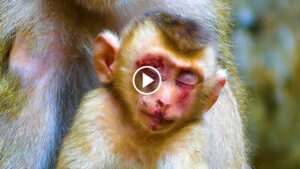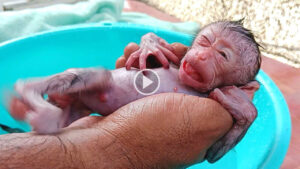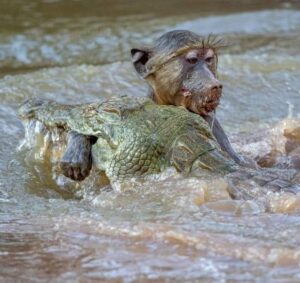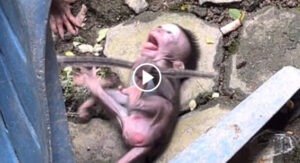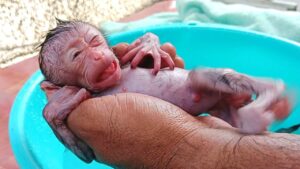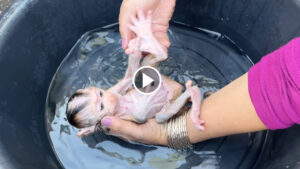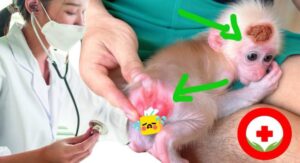- Observe Symptoms: Start by observing the baby monkey’s overall behavior. Note if it has other symptoms such as lethargy, lack of appetite, coughing, or nasal discharge. This can help determine the severity of the illness and the need for veterinary intervention.
- Provide Comfort and Rest: Ensure the baby monkey is in a quiet, comfortable environment with minimal stress. Allow it to rest, as this is vital for recovery. Keep the animal warm, but not too hot—avoid overheating, as this can make the fever worse.
- Hydration: A fever can lead to dehydration, so it’s important to ensure that the baby monkey stays hydrated. Provide fresh water or, in some cases, a special electrolyte solution for animals, depending on the species and specific needs.
- Consult a Veterinarian: If the fever persists for more than 24 hours or if the monkey shows signs of severe distress, it’s important to consult a veterinarian experienced in treating primates. A vet can determine the cause of the fever, whether it’s a bacterial or viral infection, or something more serious, and recommend appropriate treatments such as medications or supportive care.
- Follow Treatment Plan: If prescribed, follow the veterinarian’s instructions closely, including administering any medications or treatments. This might include antibiotics, antivirals, or other supportive care based on the diagnosis.
